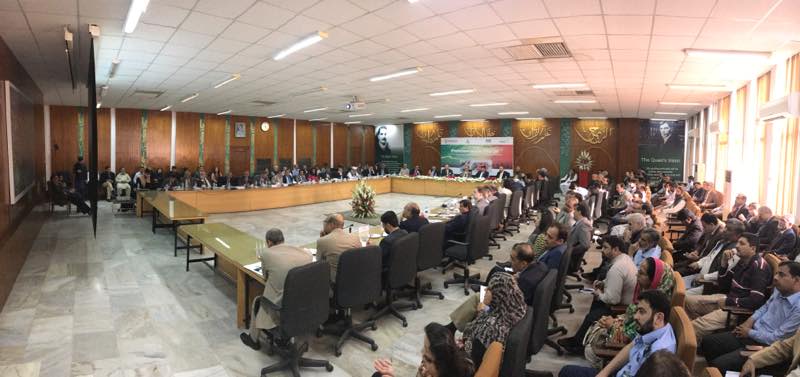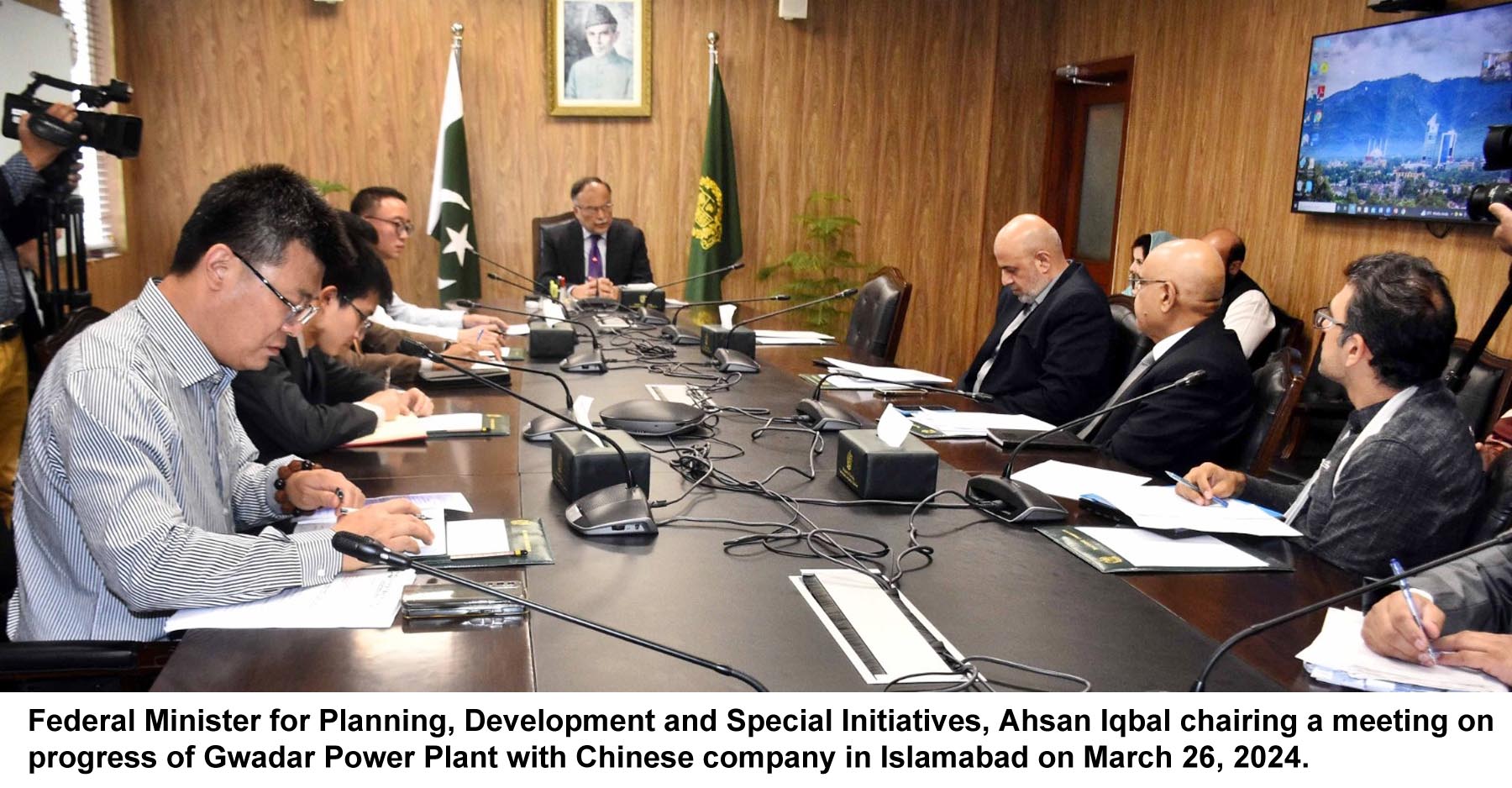ISLAMABAD, April 04, 2017: Minister for Planning, Development and Reform, Ahsan Iqbal said that CPEC has provided an opportunity to relocate China’s labour intensive industries and take full advantage from the 85 million dying jobs in China.
“The country missed several chances of development but now there is a golden opportunity of development in form of CPEC” remarked Ahsan Iqbal, Minister for Planning, Development and Reform, while speaking at a ceremony in honour of Professor Justin Yifu Lin in Islamabad on Tuesday.
He said that the private sector of Pakistan has to change its mindset as days of protectionism are over.
Minister said that China-Pakistan Economic Corridor is a great opportunity for Pakistan to achieve goal of sustainable development. The corridor project will prove to be an economic revolution for the entire region, he added.
Pakistan can achieve double its annual economic growth rate to 10% by diversifying from its agriculture and nature resources based economy to modern industrialization, said Professor Justin Yifu Lin, a distinguished Chinese Economist, a Counselor at the influential State Council of China and former Senior Vice President of World Bank while delivering a lecture at Planning Commission.
The lecture was attended by officials from line ministries, representative of business community, academia and thanks tanks.
Sectors where China is losing its competitive advantage can become Pakistan’s latent advantage, so relocation of light manufacturing from China can become an instrument to jumpstart the industrialization and structural transformation, he said.
Pakistan has maintained a decent economic growth rate but still there is a huge space for improvement, said Professor Lin, while highlighting the way forward for the economy of 200 million people.
His economic development theory gives a centre stage to the government as a facilitator aimed at overcoming externality and coordination challenges during the transformation phase.
China will move from labour-intensive to capital-intensive industry and this will free 85 million jobs that will relocate to other countries, said the Professor. “China’s upgrading to higher industries will leave a huge space for Pakistan to enter a labour-intensive industrialization development phase”, he added.
“Poverty is not the destiny of Pakistan. If Pakistan can capture this opportunity, it will be able to grow at 10% annually for 30 or more years and become a high middle income or even high income country,” said Professor Lin.
He said that the two types of Chinese investments could come to Pakistan -infrastructure and export-oriented sectors. He said that Pakistan’s businesspersons could enter into joint ventures with Chinese partners.
Professor Lin suggested six steps for Pakistan to identify sectors of latent competitive advantage. The first step is to find fast growing countries with up to 200% higher per capita income or about 30 years ago had similar per capita income. He said in 1979 China’s per capita income was 30% less than that of Pakistan but today Beijing’s per capita income was 550% more than of Pakistan.
He said that in the next step, the government should see if some private sector firms are already in these industries and should then facilitate them by removing constraints. In step three, the government should invite foreign firms to invest in sectors where the local firms are not working.
In step four, the government should also pay attention to spontaneous self-discovery by private enterprises and give support to scale up successful private innovations in new industries.
In the second last step, Pakistan with poor infrastructure and bad business environment should set up special economic zones or industrial parks to overcome barriers to firm entry, attract foreign direct investment and encourage industrial clusters.
In the last step, the government may compensate pioneer firms identified above with tax incentive for a limited period, direct credits for investments and give access to foreign exchange.
Professor Lin said that for reducing transaction cost in the infrastructure sector Pakistan needs to improve customs, roads and rail networks.







